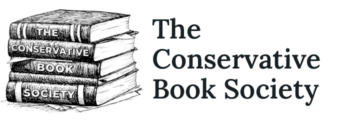H.W. Brands selects the easiest subject imaginable – Ronald Reagan. What’s not to like about our 41st President?
Few people inspire continued admiration long after they are gone. Even fewer can use their enormous popularity to do heroic things. Ronald Reagan did.
H. W. Brands’ book, Reagan: The Life, captures the full gamut. From his humble beginnings to Reagan’s love of the stage through his political life and to death, Brands does justice to the man. Brands is a historian, not a storyteller so there is little doating, just the facts. In reality, doating is probably not necessary when the subject is well loved and a political giant. Reagan is best known for helping bring an end to the Soviet Union and ushering in an era of conservativism.
Touched by God
Out of the gate, Brands makes clear that Ronald Reagan is gifted, handsome, charming, hardworking, and in many ways touched by the hand of God. He survived an assassination attempt in 1981, for example, which spiked his approval ratings. According to Brands, Reagan had a few setbacks, but good fortune followed him. Things went well for the man, so he treated the world well in return. He knew his good fortune and he made the best of it by doing the right thing, even in tough times.
The book begins where it should with Reagan’s 1964 speech to the Republican National Convention. The speech was called “A Time for Choosing” and catapulted him into the political arena. From there he became California’s governor for two terms and then served two terms as President of the United States. The highlights of Reagan’s political career focus on his economic agenda, called Reaganomics. Reaganomics focused on tax cuts to stimulate the economy, reduced government regulation, and cutting wasteful spending. Brands hits all the political highlights as well: Reagan was tough on the Soviet Union, anti-communist to the core, unapologetically pro-American, initiated a war on drugs, fired the striking Air Traffic Controllers, and succeeded in having his Vice President, George H. W. Bush succeed him to the presidency (so called Reagan’s third term).
What Made Reagan Special?
While Brands mostly paints a broad brushed portrait of Reagan, he does give us a peak into the man behind the cameras. Like Abraham Lincoln, Regan was attuned with his time, quick witted, and always armed with a joke. His charm and affability made him an inevitable success. His acting career developed his presentation and familiarity. People knew Reagan because he had been on television where he learned timing, tone, pace, and all the skills he later used in politics. His radio career helped hone his ability to deliver one liners, emphasizing the punchline just right. During a debate in 1984, for example, the moderator asked if Reagan’s age was a concern. Reagan smiled and replied: “I will not make age an issue of this campaign. I am not going to exploit, for political purposes, my opponent’s youth and inexperience.” Reagan’s crisp and cleaver response ended all the talk of Reagan being too old.
The Great Communicator
To many, Reagan was “the great communicator” and best known for his extraordinary speeches. From his first inaugural address he tells the American people exactly where he’s going, “In this current economic crises government is not the solution to our problems, government is the problem” as he explained to the nation his plan to revive the American economy. Years later, during the 40th anniversary of D-Day, Reagan stood on the shores of France and described with elegance how the rangers helped take back the continent of Europe. And when the NASA spacecraft, the Challenger, exploded with a teacher on board and millions of school children watching, Reagan’s calm demeanor in a televised address comforted the nation. Perhaps his most known address came near the end of his Presidency. Reagan returned to Europe and stood at the Brandenburg Gate in Berlin where the Soviet Union occupied territory just over his shoulder. With millions around the world watching, the American President demanded the Soviet leadership, “tear down this wall.” Shortly after, the Berlin Wall came crumbling down by the hands of the people and the Soviet Union collapsed.
Backstage
Reagan’s ability to connect with people grew from his love of people, and he saw himself as a hero born to lead. As a teenager he was a lifeguard and kept record of his “saves.” He carried that same zeal with him all his days. Brands makes clear that because he fought for people, they loved him back. He seemed to govern with grace because so many behind the scenes stood up for him and took the heat, so he could carry on. The people around him wanted him to succeed, and he did.
It’s hard to imagine, but Reagan won 49 states in the 1984 election. He inherited a struggling economy and a cold-war against a tough but vulnerable Soviet Union. He promised economic reforms and strength abroad, which gave him direction from start to end. Reagan stayed the course, ultimately reviving the economy through tax cuts, reduction in government waste, and reducing burdensome regulation. His foreign policy eventually broke the back of the Soviets, and the union collapsed, and communism receded globally – at least for a few decades. He did all without breaking a sweat.
Brand’s book is not for or against Reagan, it reads as if it’s the factual telling of the man’s life. But in reading it, it’s hard not to love our 41st President. It’s equally hard not to see the similarities with today and wonder if a rescuer with grace, wit, and determination can pick up the Reagan playbook and “win just one for the Gipper.”





